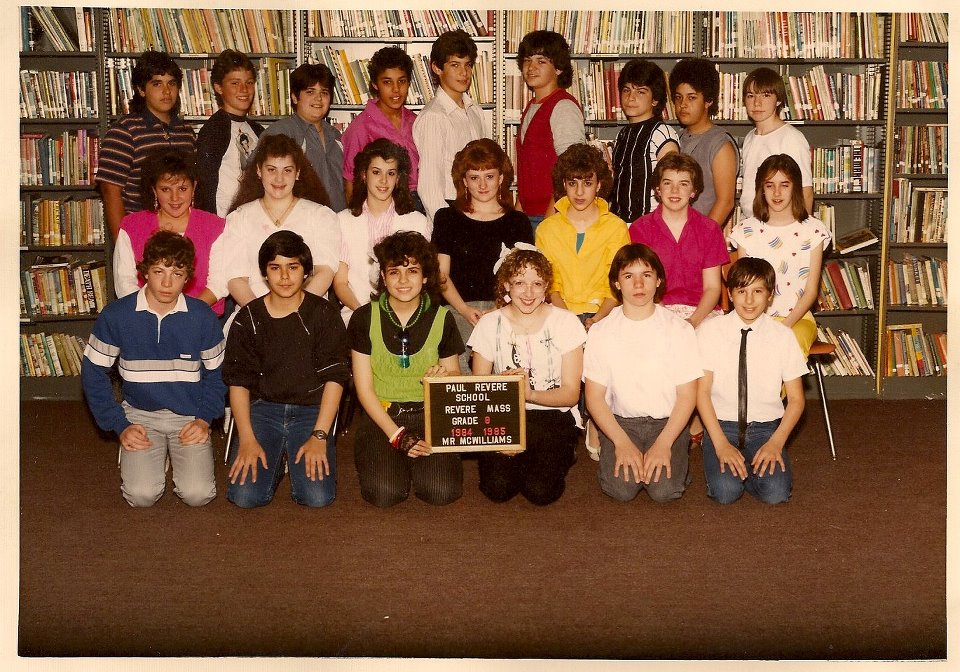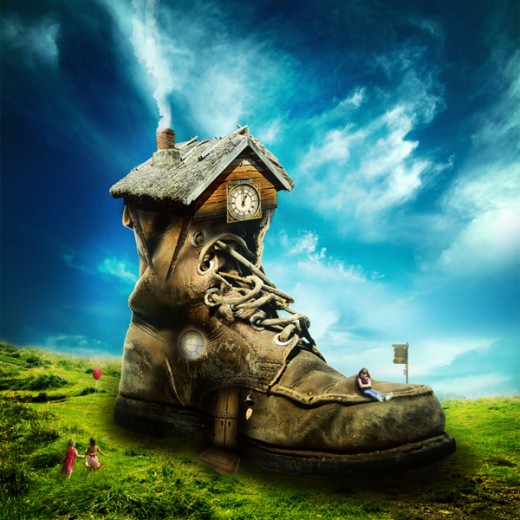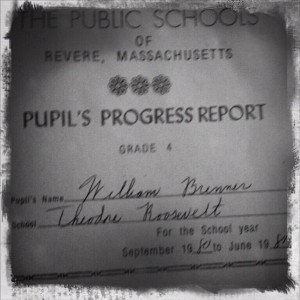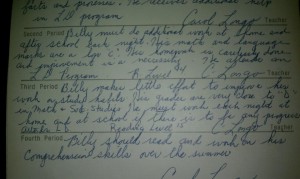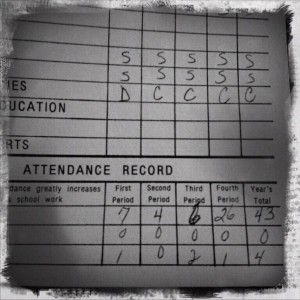A few months back I wrote a letter to a girl named Addie, who has struggled with OCD. This is a similar letter for the child of a friend who is struggling with OCD and other mental disorders.
Some of what follows was in Addie’s letter. But I’ve added to the previous thoughts because I’ve learned even more about myself and how to manage my own OCD since that was written.
Mood music:
http://youtu.be/QGEeNLXAWyg
Hey, there.
My name’s Bill, and I know a thing or two about what you are going through. I’m a friend of your Dad’s and he told me that you get stuck on one particular thought and can’t let go.
I’ve been there. That used to happen to me all the time. I usually compare it to the brain being like a scratched CD. The song gets caught in a skip and won’t move on to the next track. That’s what happens to us, isn’t it? We get stuck on a thought and can’t move on to the next thing no matter how hard we try.
The resulting pain is like a deep cut in the skin.
I bring it up for a couple reasons.
1.) To let you know that you are not alone. A lot of people suffer from this as we have.
2.) To let you know that you will be fine — better than fine. But you’re going to have to do some hard work to get there.
I’ve told those who ask that living with obsessive thinking is like being stuck behind a wall. Everyone worries about things, but the so-called normal people can still go on with life and even enjoy it, despite their cares.
Not us. We get stuck. Everything else stops and we get left in the dust while everyone else is moving on.
It causes anxiety, which is a nasty thing to live with. I spent the better part of my 20s and early 30s hunkered down in my bedroom because of it. I saw guys looking for a fight around every corner.
Whenever I had to get on a plane, I’d have visions of the plane going down in flames. If I had to make a stand or take a test in school or turn in a big project at work, my mind would spin violently with every negative thought one could have. I would fear for the worst, but never hold out hope for the best.
I worked myself into a stupor over the safety of my wife and children. I had an obsession with cleanliness, which was interesting since depression always meant my personal hygiene took a dive. I was terrified of world events.
Yet I got through each one of those moments.
One day I woke up and realized the fear and anxiety had to go. It took a long time, but through good therapy, medication and a deepening faith in God, those things did go away.
The first thing to remember is that you have a mom and dad who love you and will do anything for you. They will be your biggest allies. There will be others who will help you through it. Many, many others. Their support is much, much bigger than the things your anxiety has made you fear.
When my children were younger, they watched a show called “Veggie Tales.” One episode focused on a boy afraid of the boogie man. He learned a song called “God is Bigger Than the Boogie Man” and that made his fear much smaller. In time, it went away. God is bigger than anxiety, too. The fears you get from the anxiety are over things that aren’t real. The only thing that is real is the here and now, and what you do with it.
You ever watch Mister Roger’s Neighborhood on PBS? After the Sept. 11, 2001 terrorist attacks, he did a wonderful show about getting through bad times. He said:
When I was a boy and I would see scary things in the news, my mother would say, “Look for the helpers. You will always find people who are helping.” To this day, especially in times of disaster, I remember my mother’s words, and I am always comforted by realizing that there are still so many helpers–so many caring people in this world.
Mr. Rogers learned a powerful lesson from his mother. I wish I had it in my head to focus on the helpers growing up. In hindsight, they were always there:
–The doctors and nurses who saved me from brutal bouts of Crohn’s Disease, which shaped how my OCD would manifest itself later on.
–The therapists who guided me through a diagnosis of OCD and showed me how to manage it.
–My family, especially my wife, and also my father and mother.
–My friends, who have always helped me make sense of things, made me laugh and done all the other things a person needs to get through the day.
–Many of the people in my faith community, who showed me how to accept God’s Grace, even if I still suck at returning the favor.
So that’s one of the big lessons: Always look for the helpers. You will always find them.
The other piece of advice is to never, ever let yourself believe that you can’t live life to the fullest because you have OCD.
Have you ever heard of Winston Churchill? He was Prime Minister of Britain during the darkest days of World War II. He often suffered from depression — he called it his Black Dog — and yet he led his country to victory over evil. He had a saying that I think of every day when the going gets tough: “Some people see a calamity in every opportunity. Others see an opportunity in every calamity.”
Do you like music? I find that music — rock and roll, specifically — soothes my soul in times of difficulty and gives me the strength to press on. There’s a band called Def Leppard that has an inspiring story of success despite bad things that could have stopped them cold. The drummer, Rick Allen, had an arm ripped off in a car wreck. A lot of people thought his career was over. Twenty-six years later, he’s still drumming. The example applies to people like us. OCD can only defeat us if we let it.
I’m not about to let that happen. I’ll bet you feel the same way.
I have a final and important piece of advice for you:
Even if you are able to free yourself of the obsessive mind freeze — and I know you will — you will still have plenty of OCD moments. I still check my laptop bag several times to make sure I didn’t forget my computer. I still go on a cleaning tear through my house if too many things are out of order.
That’s perfectly OK. As long as you learn to beat down the part where your mind spins with worry about things beyond your control, the other habits are fine. Since I’m open about my OCD, people don’t look at me funny when I have those “OCD moments.” They’ve learned to see beyond the habits and see me for who I am.
And sometimes, the OCD moment can be put to good use. If you have a big project, the OCD can push you to get it done and done right. It may seem strange, but if you learn to manage it, it can be very useful.
Some of our repetitive motions do look silly at times. Don’t worry about it. Learn to laugh at it instead.
Life is tough. But it’s supposed to be. It’s how we discover who we are and what we are capable of. I bet you are capable of a lot.
Take care of yourself, and keep the faith. You’ll get through this.
Yours truly,
Bill Brenner


